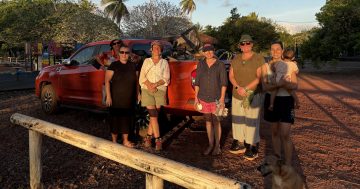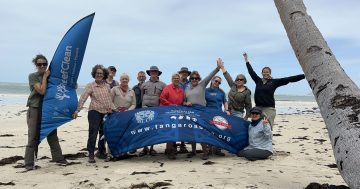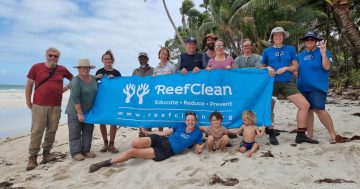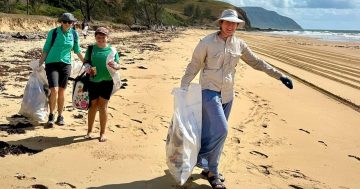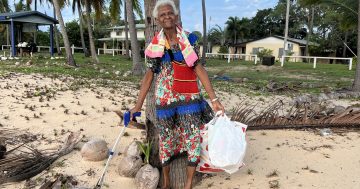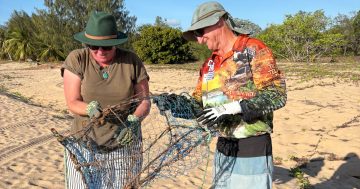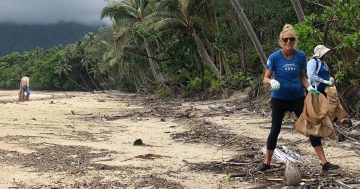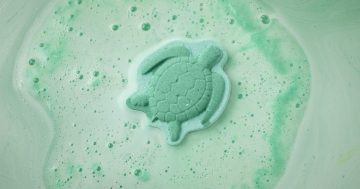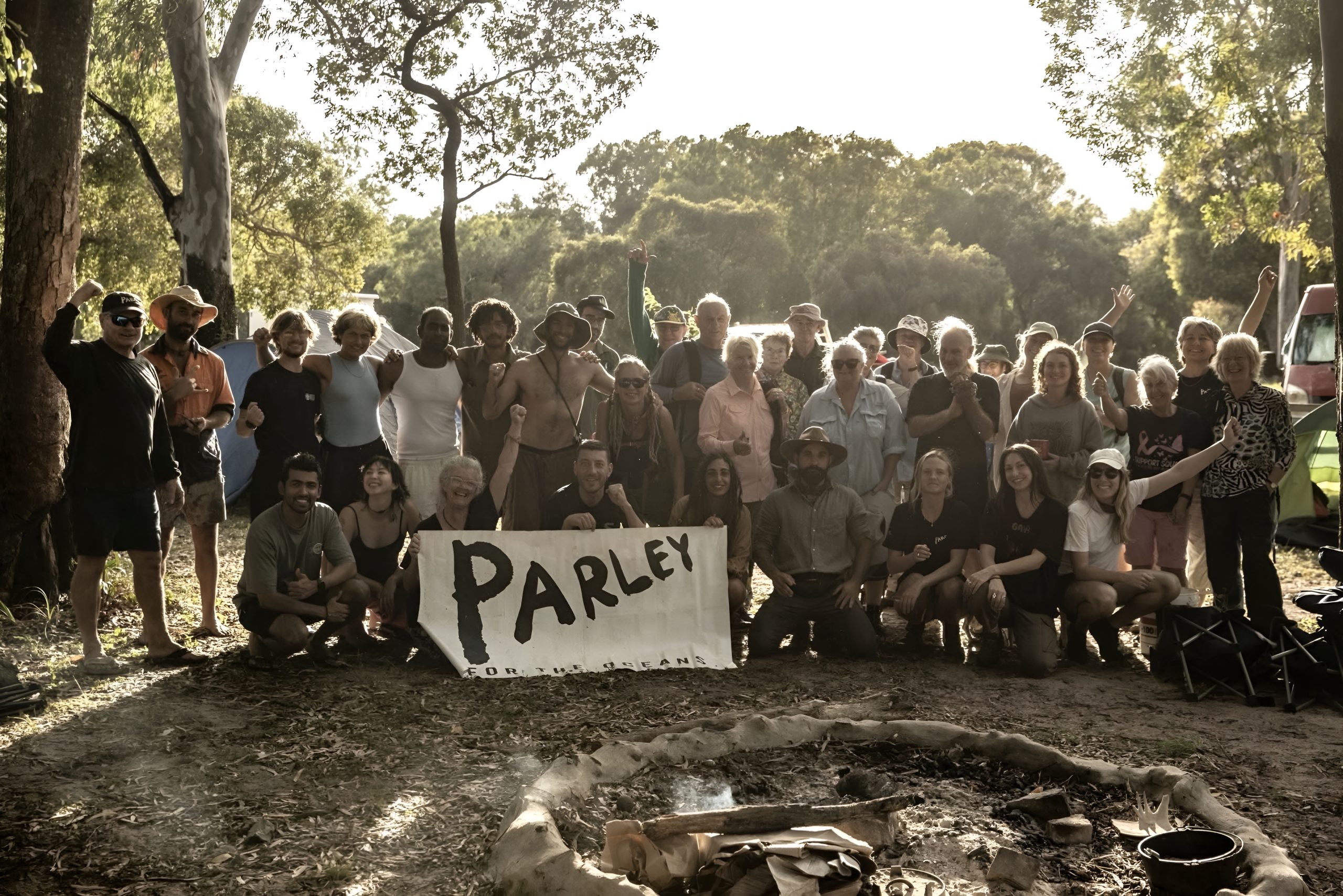
A staggering 14 tonnes of marine debris was collected by volunteers during Parley Australia’s Cape Bedford clean-up expedition this month. Photo: Facebook (Parley Australia).
Ten days of sun, sand and sweat have made the coastline of Cape Bedford 14 tonnes lighter after Parley Australia’s biggest beach clean-up expedition yet.
The aches and pains of 50 volunteers are now starting to fade after picking up marine debris over a 10-kilometre stretch earlier this month in collaboration with Traditional Owner Ivan Deemal, who guided participants on the cultural significance of the land.
One volunteer, Therese Phillips, said that as a newcomer to Cooktown, the beach clean-up was a meaningful way to connect with her new home.
“The best way to know where you are is to literally walk on the land,” she said.
“I really think that it’s worthwhile to participate in an event like this; I’d been for a drive around another beach not too far from Cooktown, and I had seen in a very small way, the sort of litter that can come up on a beach.”
Ms Phillips said the sheer volume of marine debris was initially overwhelming, but found that the Parley Australia team was able to break it down into manageable tasks.
“When you would drive down the beach in the morning and see the volume of plastic and refuse that was on the beach, you think you’ll never be able to clean this,” she said.
“It was just like a miracle; it seemed like an impossible task, but it’s a bit like how do you eat an elephant – one bite at a time.”
She said the expedition and seeing the debris firsthand, including more than one tonne of plastic bottles and glass, affected her everyday choices as a consumer.
“I’m coming back and I’m immediately hating plastic the way I’ve never hated plastic before,” Ms Phillips said.
“I’ve replaced some plastic containers already with some ceramic, glass and silicon-lidded containers already, and I’ve said to my family, we are actively moving away from plastic.”
Another volunteer, Anika Craney, who works in the diving industry, said the amount of rubbish on the beach brought “tears to the eyes”.
“I’ve done a lot of deep sea expeditions … I’ve seen a lot of waste out there, which is really heartbreaking, because we’d be like four, five days sail from land, and there’s still so much out there,” she said.
“This is the first time I’d seen that amount of rubbish in a small space, and it makes me realise how much more there must be out there.
“It’s impactful in different ways, but to see that much was really heartbreaking, like it did bring tears to the eyes.”



